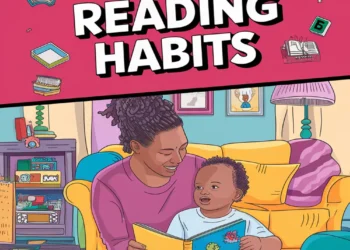If you notice your child struggling with speech, like having a limited vocabulary by 18 months or difficulty following directions by age 4, they might have developmental delays. Other signs include motor skill challenges, such as trouble grasping objects or climbing stairs, and difficulties in social interactions, like limited eye contact. Early detection is key in addressing these issues. Keep observing your child’s progress, and you’ll soon discover more effective strategies to support their development.
Understanding Developmental Delays
When you notice your child isn’t hitting developmental milestones at the same pace as their peers, it can be concerning. Developmental delays refer to significant lag in skills such as motor, cognitive, social, or language development. These delays can manifest in various ways, impacting your child’s ability to learn, communicate, and interact with others. It’s vital to understand that every child develops at their own pace, but persistent delays may require attention. Early identification is key, as timely intervention can lead to better outcomes. By keeping a close eye on your child’s progress and maintaining open communication with healthcare providers, you can guarantee they receive the support they need to thrive, fostering their development effectively.
Recommended Items
Discover our handpicked recommendations to support your parenting journey—explore and find what works best for your family!
Common Signs of Speech and Language Delays
How can you tell if your child is experiencing speech and language delays? Here are some common signs to watch for:
| Age Range | Signs of Delay | Suggested Actions |
|---|---|---|
| 12-18 months | Limited vocabulary (less than 10 words) | Consult a speech therapist |
| 2 years | Not combining words | Engage in more conversational play |
| 3 years | Difficulty being understood | Encourage storytelling |
| 4 years | Trouble following simple directions | Read together daily |
| 5 years | Limited ability to answer questions | Involve them in discussions |
If you notice these signs, it’s vital to seek support. Early intervention can make a significant difference and help your child communicate more effectively.
Recognizing Motor Skill Challenges
While speech and language skills are essential for communication, motor skills are equally important for your child’s overall development and daily activities. Motor skill challenges can manifest as difficulties with basic tasks like grasping objects, walking, or climbing stairs. You might notice your child struggling to catch a ball or having trouble with fine motor tasks, such as holding a crayon or buttoning a shirt. These challenges can affect their confidence and ability to engage with peers. Observe their movements and seek guidance if concerns arise. Early intervention can provide the necessary support, helping your child develop the skills they need for daily tasks and social interactions. Trust your instincts—if something doesn’t feel right, reaching out for help is essential.
Identifying Social Interaction Difficulties
As your child grows, you might notice signs of social interaction difficulties that can impact their ability to connect with peers. These challenges can manifest in various ways. Recognizing these signs early helps you provide the support they need.
| Signs | What to Look For |
|---|---|
| Limited Eye Contact | Avoids looking at others during conversations |
| Difficulty Taking Turns | Interrupts or dominates conversations |
| Struggles with Understanding Emotions | Has trouble recognizing facial expressions |
If your child shows these signs, consider reaching out to a pediatrician or child psychologist. Early intervention can considerably improve social skills and confidence, creating better opportunities for peer relationships.
Cognitive Development Indicators
What signs indicate your child’s cognitive development is on track? First, your child should show curiosity about their surroundings, often asking questions and exploring objects in their environment. By age two, you might notice them following simple instructions, recognizing familiar people, and identifying basic shapes and colors. As they grow, look for improvements in problem-solving skills; your child should be able to complete simple puzzles and understand cause-and-effect relationships. By age four, they should begin to grasp concepts of time, like “yesterday” and “tomorrow,” and tell stories. Monitor their ability to concentrate on tasks; they should be able to focus on an activity for several minutes. Recognizing these cognitive milestones can help guarantee they’re developing as expected.
Importance of Early Detection
Recognizing cognitive development indicators early on sets the stage for addressing any potential delays. The sooner you identify concerns, the better your chances of providing timely support. Early detection helps pinpoint specific areas where a child may struggle, allowing for targeted interventions. This proactive approach can considerably improve a child’s overall development and well-being. It also encourages parents to seek resources, guidance, and community support, fostering a collaborative environment that benefits both child and family. Remember, early intervention isn’t just about fixing problems; it’s about laying a strong foundation for your child’s future success. Being vigilant can make a real difference, giving your child every opportunity to thrive and reach their full potential. Your awareness is the key to releasing their developmental journey.
Action Steps for Identifying Delays
Strategies for Supporting Development
Effective strategies for supporting a child’s development can make a significant difference in their growth and well-being. Start by creating a structured routine that provides stability and predictability. Incorporate play-based learning to spark curiosity and enhance cognitive skills. Engage in activities that promote social interactions, such as playdates or group activities, helping them build friendships and communication skills. Encourage your child to express their feelings and thoughts, validating their emotions. Use positive reinforcement to celebrate their achievements, no matter how small. Finally, model appropriate behaviors by demonstrating patience, empathy, and resilience, as children often learn through observation. By actively nurturing your child’s unique needs, you’ll foster an environment where they can thrive and develop their full potential.
When to Seek Professional Help
Supporting your child’s development is essential, but there are times when concerns may arise that warrant professional attention. If you notice your child isn’t meeting key milestones—like speaking, walking, or socializing—it’s important to act. Other signs include difficulty concentrating, excessive tantrums, or unusual behavior that disrupts daily life. Don’t hesitate to reach out if you feel your instincts are telling you something’s off. Early intervention can lead to better outcomes, so consulting a pediatrician or a specialist can help clarify the situation. You’re your child’s advocate; addressing your concerns promptly allows you to access the resources they might need. Remember, seeking help isn’t a sign of failure—it’s a step toward ensuring your child’s healthy development.













